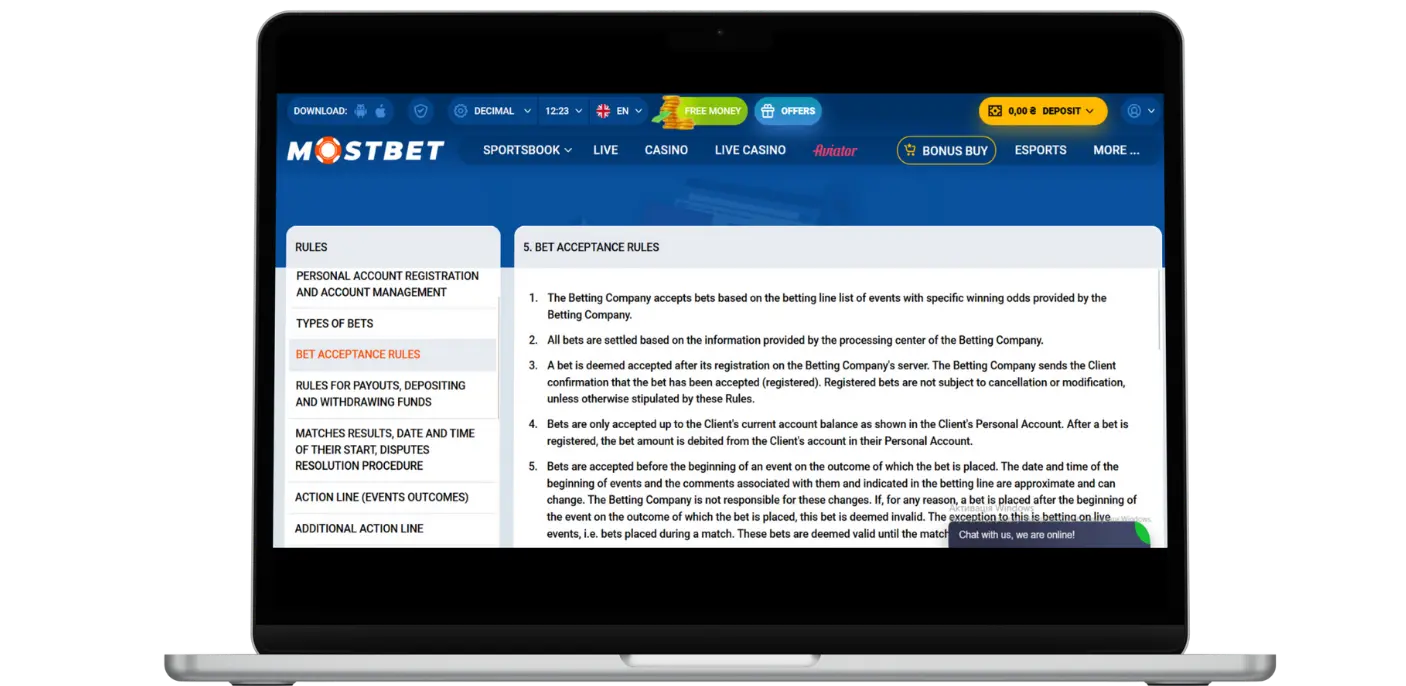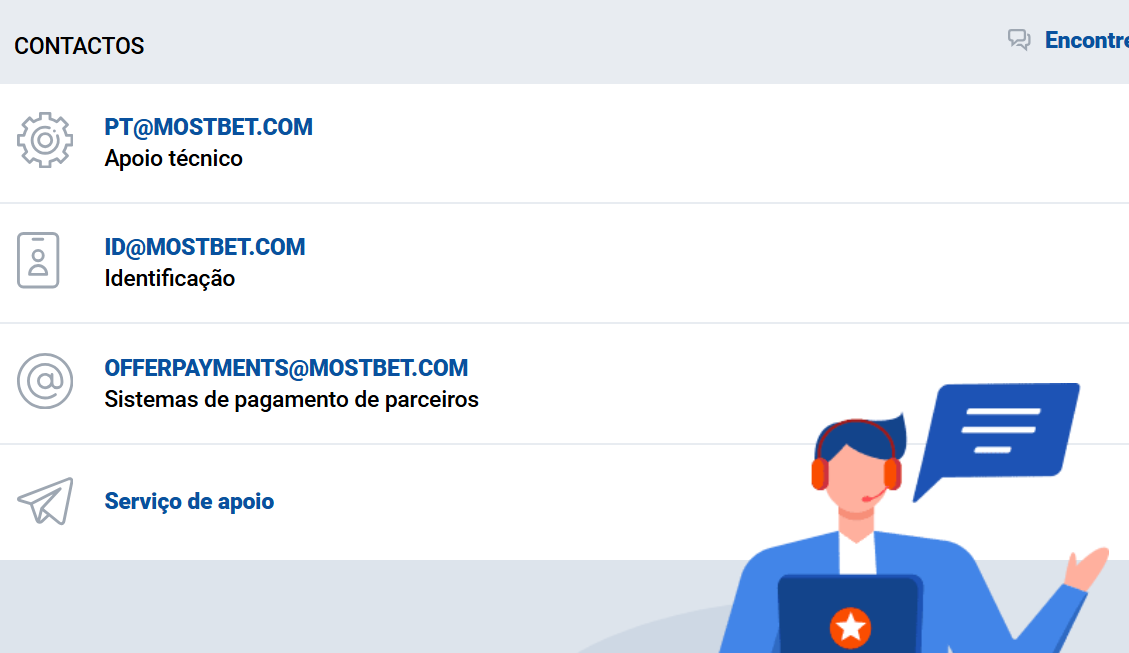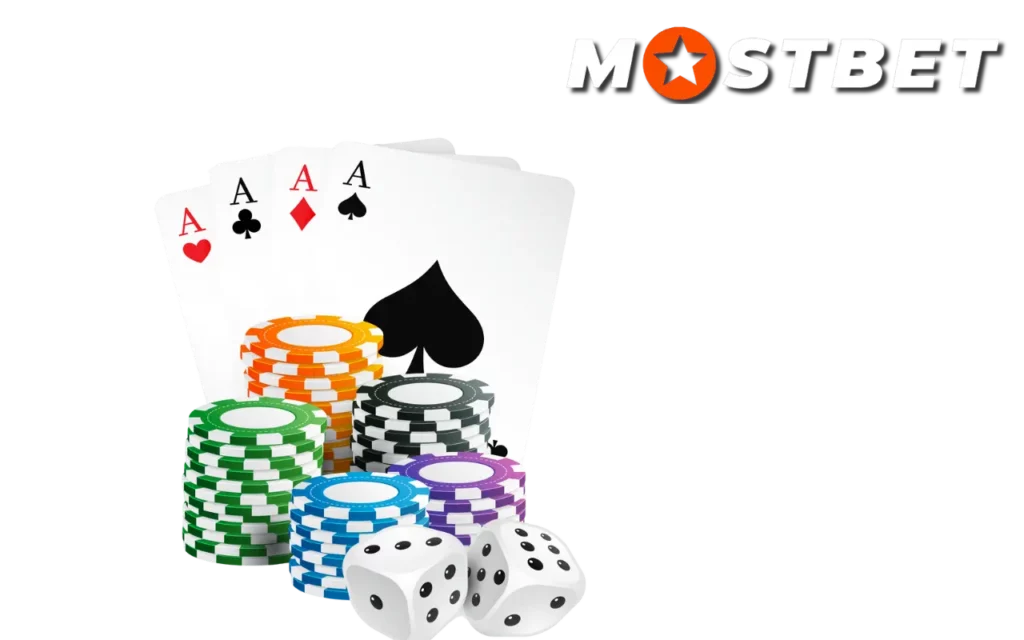Introduction

Mostbet practices responsible gambling following their commitment to provide a responsible gambling experience. Time and money limits help players keep gambling under control. This is to make sure that gambling should be fun and entertaining, without being detrimental to personal or financial well-being.
Gambling addiction, also known as compulsive gambling, is an impulse-control disorder in which a person is unable to resist the urge to gamble, despite the harm it causes. Its impact can have serious personal and financial repercussions, influencing both mental well-being and relationships. Gambling is fun, and when risks are understood and mitigated, it does not need to have serious consequences.
Mostbet is committed to the concept of responsible gaming. We provide players with various tools to help track their behavior, including self-exclusion options, deposit limits, and reality check reminders. We also offer educational materials to increase awareness of the dangers of gambling and how to manage behaviours. We have pledged to stay committed to our mission to provide a safe space for players to engage responsibly in their gaming experience by betting within their means and avoiding any adverse outcomes.
Recognizing Problem Gambling

Signs of Gambling Addiction:
- Spending excessive time or money on gambling: Those addicted to gambling will place gambling above all else — even obligations or hobbies. They may stay all night at casinos or online betting sites and may even lose track of time. Financially, they may drain savings, go into debt or even borrow money to keep gambling.
- Using gambling as a way to escape personal problems: For a lot of people, gambling is a way to cope from dealing with stress, anxiety or depression among other things. Gamblers’ thrill may give them a distraction, but it often exacerbates core issues and causes new problems.
- Neglecting family, work, or hobbies: Addiction can lead to a significant decline in personal and professional responsibilities. Affected individuals may miss work deadlines, distance themselves from loved ones, or abandon previously enjoyed activities. This neglect can strain relationships and further isolate the person.
Self-Assessment Questions:
- Have you come under fire because of gambling?: If friends, family members, or colleagues have commented in the past about your gambling habits, it may mean your behavior is noticeable — and possibly harmful. External criticism tends to reveal habits from the outside that you yourself might not fully understand.
- Do you gamble to recover losses? : It is also known as “chasing losses,” when people try to recover money lost in previous gambling sessions. This can result in a death spiral of financial (mis)management, where losses compound instead of being expunged.
- Have you lied about your gambling activities?: Lying about how often, how much money is spent or why you’re gambling is a warning sign. Gambling addiction is a compulsive behavior, and lying can be a way for someone to protect themselves from guilt, shame, or judgment.
Negative Consequences of Gambling Addiction:
- Impact on Relationships: One of the most notorious consequences of gambling addiction is a deterioration of family and social ties. The secrecy, the financial woes and betrayal of loved ones can lead to arguments, loss of trust and close relationships butting heads.
- Impact on Finances: One of the most common side effects of gambling addiction is money problems. People might run low on savings, max out credit cards or pile up debt trying to win back gambling losses. This financial strain also could result in repossessions, bankruptcies or legal problems.
- Impact on Mental Health: Gambling addiction can also take a severe emotional toll, leading to anxiety, depression, and depression. With dire consequences from addiction, some grow suicidal.
Tips for Responsible Gambling

- Play for Fun, Not as a Source of Income: Treat gambling as entertainment, not a means of making money. Betting to hope for profit will lead to disappointment and bad decisions.
- Set Time and Budget Limits.: Set firm limits on what to bet. Use tools to create time and spend limits on your account.
- Only Gamble with Money You Can Afford to Lose.: Never gamble with money you need for essential expenses like rent or bills.
- Do Not Gamble While Under the Influence of Alcohol or Drugs: Alcohol and drugs can impair your judgment and lead to reckless betting.
- Monitor Your Betting Activity: Check your “Bet History” to review spending and outcomes. Staying in control requires an understanding of your habits.
Tools for Responsible Betting
Responsible betting isn’t just a matter of personal discipline — it’s about using the tools at your disposal to keep the impulse to wager in check. To help players gamble responsibly, most sites provide tools that can assist gambling habits in a healthy manner. Here are some essential tools to consider:
- Self-Exclusion Options: If you feel like gambling is getting out of control, self-exclusion may be the best option. They can also have their account temporarily suspended or permanently banned. The feature can be activated easily enough by contacting customer support — giving individuals time to step back and reclaim the ability to quit without societal pressure pushing them to continue gambling.
- Setting Betting Limits: Mostbet and many other gambling sites offer tools that allow users to set limits on how long they can spend gambling and how much money they can wager. Setting these caps helps ensure players don’t overspend or spend more time gambling than originally intended, allowing the pastime to remain a playful, stress-free experience.
- Accessing Account History: Your betting activity is a good place to find information about yourself. Many platforms give users a breakdown of their account activity with filters, allowing them to analyze their spending, winnings and losses. This data can help in recognizing patterns and devising smart habits over time by accessing it on a regular basis.
Seeking Help and Support
If gambling is getting out of control or is causing distress, also know that you’re not in this alone. Some signs that it could be time to reach out include spending more time and money on gambling than expected, feeling guilty or shameful about gambling behavior, borrowing money to gamble, or shirking responsibilities and relationships. Getting help early can help avoid more emotional, financial and social damage. Developing a support network is a powerful asset to have when creating lasting change Remember, asking for help is not a sign of weakness, but strength.
Recommended Support Organizations.
- GamCare: +44 808 8020 133 or www.gamcare.org.uk
- Gambling Therapy: www.gamblingtherapy.org
- Gamblers Anonymous: www.gamblersanonymous.org.uk
- BeGambleAware: www.begambleaware.org
- GamBlock: www.gamblock.com

Self-Exclusion Policy
Read More
- How to Apply for Self-Exclusion: Players can contact customer support to request account closure or restrictions. This process is designed to be straightforward and supportive.
- Terms of Self-Exclusion: Self-exclusion periods range from six months to permanent bans. Accounts cannot be reactivated during the exclusion period.
- Account Monitoring During Exclusion: All related accounts are blocked to prevent access. Users must update contact details to maintain restrictions.
Underage Gambling Prevention
Ensuring that young people do not engage in gambling is a serious duty that both gambling service providers and society as a whole should take seriously. There are serious long-term impacts to children engaging in gambling activities, including the risk of developing poor habits for handling money as they get older. Therefore, ensuring the safety of young people is an essential step toward building the right gambling environment to help the healthy progress of the community while preventing hazards for vulnerable groups.
We firmly believe children and teenagers should be protected from the risks of gambling and are committed to protecting minors. And of course, this means that stringent measures need to be put in place to prevent any minors from accessing gambling services or sites.
Restricting access is key in preventing underage gambling. This may involve implementing age verification systems, secure sign-in processes, and monitoring systems to ensure that only eligible users participate. Encryption and secure protocols are used to protect log in credentials and other sensitive data from being accessed by unauthorized parties.
Monitoring and Prevention
Read More
- Detecting Problem Gambling Behaviors: Identifying problem gambling behaviors is an essential first step in creating a safer and more responsible gambling environment. Utilising sophisticated statistical analyses and observing behaviour, gambling sites are able to detect trends that may be symptomatic of at-risk customers.
- Actions Taken by the Company: When there are signs of gambling problems, companies like Mostbet take decisive action to protect users and minimize harm. Examples of this can include, limiting and even restricting access to gambling accounts for those showing signs of addictive or loss of control behaviors.
- Promoting Responsible Gambling Practices: This is the beginning of an ongoing effort to educate, raise awareness, and ensure all users have access to responsible gambling tools. Educational campaigns raise awareness among players about the dangers of gambling addiction, and encourage them to set personal limits on the amount of time spent and money spent on games.
Contact Us
We retained responsible gambling queries support as a pillar for providing a safe and enjoyable experience for all users. Each gaming site respondent offers specific gamproofing and support options for tools related to responsible gambling through multiple customer support contact channels. Whether it’s setting deposit limits, activating self-exclusion features or finding educational resources, trained support representatives are available to walk users through the steps

















